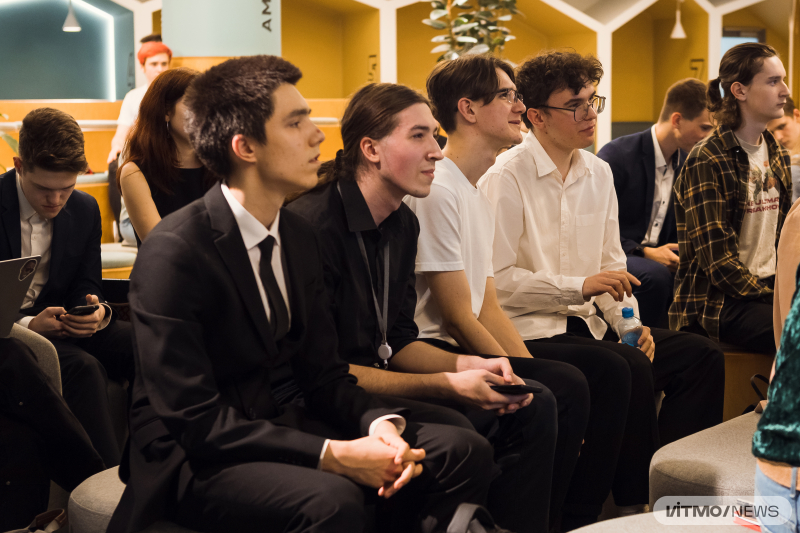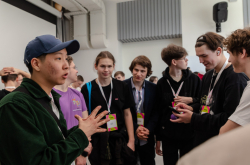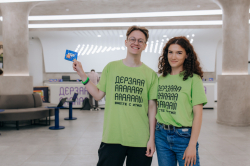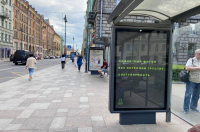Contents:
About the contest
ITMO.STARS is a contest that enables uniquely talented and motivated students to enroll at ITMO University based on their scientific or socially-relevant projects, engineering solutions, or tech startups, rather than their exam scores (though no less than 60 for each subject is still required). Developers of the best solutions are accepted into the university on a tuition-free basis.
The contest has been held for over five years now, with tens of first-year students having become part of ITMO.Family.
“ITMO.STARS is a grant contest that allows students to study at ITMO for free, but they must confirm their eligibility each year of their studies. Students who successfully defend their projects make up a community of ITMO.STARS participants, including previous years’ winners, who take part in workshops on public speaking and presentation, as well as receive advice on starting a business from the university’s graduates,” explains Alexey Itin, the head of the Admission Office at ITMO University.
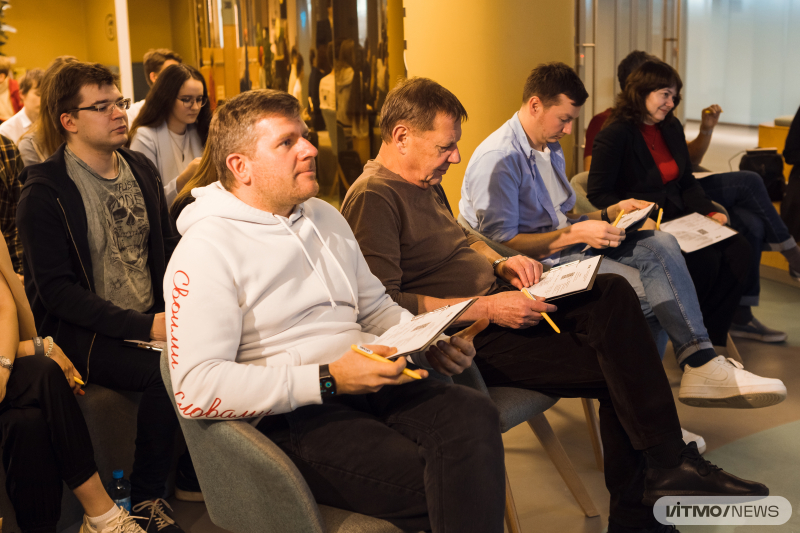
The jury at the defense of projects by ITMO.STARS participants at ITMO University. Photo: Dmitry Grigoryev / ITM
Read also:
Enrolling As an ITMO Star: A Wealth of Opportunities
ITMO Student Daniil Kazantsev on His Sign Language Translation Technology
How to apply
-
Fill out the application form. Your application must include information about your project, the program of your choice, and a letter of motivation, describing why you think you deserve to win. Applications are submitted via the applicant’s personal page on the admission website;
-
The contest committee reviews applications and invites possible candidates for interviews;
-
The committee announces those who will be able to study in the program of their choice and continue working on their ideas at ITMO University for free.
In 2024, applications will be accepted from May 1 to June 18. Successful candidates will have their interviews between July 22 and July 29. The results of the contest will be announced on August 1.
Visit the contest’s website for additional information and follow our VK page and Telegram channel to stay updated on the 2024 admission process.
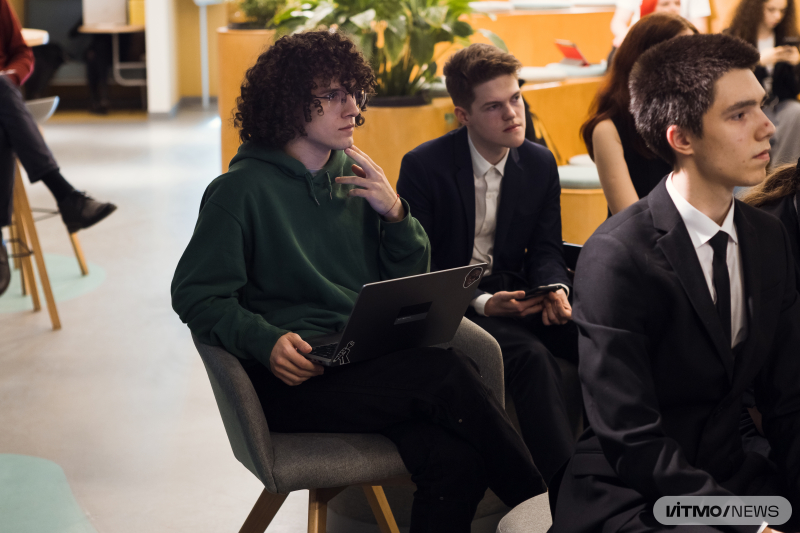
The defense of projects by ITMO.STARS participants at ITMO University. Photo: Dmitry Grigoryev / ITMO.NEWS
Projects
Last year, 26 students from 17 Russian cities, including Izhevsk, Penza, Perm, Yoshkar-Ola, Ivanovo, Krasnoyarsk, and others, became finalists of ITMO.STARS. Over the course of the academic year, the students continued to refine their ideas and recently presented the interim results. ITMO.NEWS talked to some of the winners to learn more about what they've managed to achieve so far and what they plan to do next.
Anastasia Dedkova
Faculty of Infocommunication Technologies
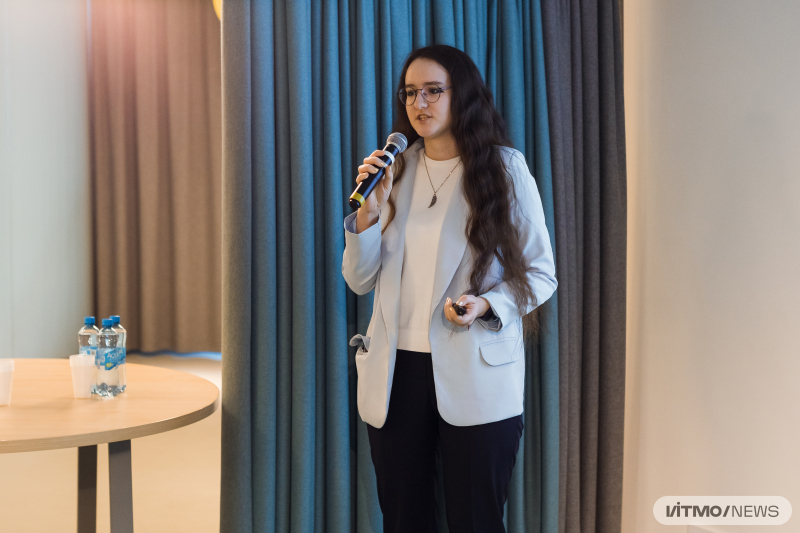
Anastasia Dedkova. Photo: Dmitry Grigoryev / ITMO.NEWS
I’ve developed ELLIE – a medical chatbot that can analyze a patient’s symptoms, either through text or a voice message, and recommend the right specialist. The bot, trained on a database of 240,000 patient complaints provided by the Medsi medical group, speeds up the process of selecting specialists through the means of automation.
Apart from the chatbot, I’ve also worked on a recommendation system, which, too, analyzes a patient’s condition and suggests an article to read from out of 642 publications published on Medsi’s website. The way I see it, tools like that can protect users from misinformation and help them prepare for their appointment. I’m also currently doing an internship at Medsi. As part of my internship, I’m building an ensemble of models that will provide a preliminary diagnosis based on patients’ symptoms and thus help reduce the risk of medical error while confirming the diagnosis and allowing treatment to begin earlier. The chatbot and the recommendation system will be improved and eventually integrated into SmartMed, the network’s mobile app.
The algorithms I used for my projects came in handy when I took part in the hackathon ML TalentMatch. My colleagues from the Laboratory of Intelligent Services and Applications (LISA) and I made it to the finals, scoring 89 points out of 100. I also presented my project at the Future Technologies Forum, which showcased state-funded medical projects.
The knowledge I gained at ITMO helped greatly in designing the recommendation system: in particular, a course on linear algebra has helped me with vectors and matrices and a term paper on information and communication technologies – with machine learning algorithms. For my term paper, I outlined four possible recommendation systems for an online auction of collectibles.
ITMO.STARS is a chance that’s not to be missed. I’d recommend everyone to jump at it and try to get into ITMO via this contest. It’s home to awesome like-minded people who are ready to participate in hackathons and projects and share their experience.
Maksim Zoteev
Faculty of Infocommunication Technologies
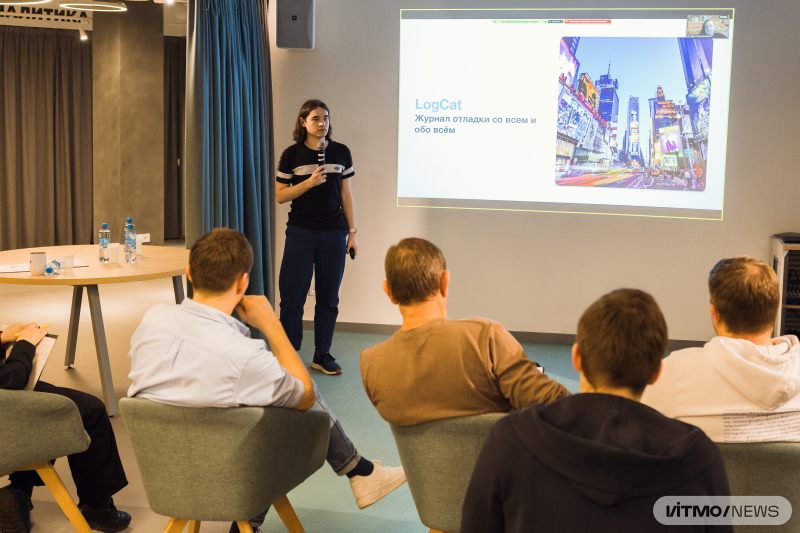
Maksim Zoteev. Photo: Dmitry Grigoryev / ITMO.NEWS
On Android smartphones, when an app crashes due to an error, the system issues a notification – but what exactly went wrong is usually unclear. To understand what really happened, you need to connect the phone to a computer, open the Android debug logs, and find the error data.
I’m developing an app called LogFox, and one of its goals is to make it much faster to find the cause of the issue. The software identifies the malfunction and provides you with information about the error and which file contains the faulty code. This should prove helpful to Android developers and testers. Using the app, they can quickly pinpoint the issue and fix their code. As of now, my app has been downloaded off of GitHubt more than 7,000 times. In the future, I plan to publish it on RuStore (a Russian app store for Android devices – Ed.) and Google Play so it can reach a larger audience.
Within my first year at ITMO, I’ve made significant improvements to the project, and that includes better search and filtering functionality, as well as the ability to enable session caching – meaning that the system will save logs about errors even if the device is reset. During my classes at university, I’ve learned to create new architecture patterns for Android apps, write UI tests to check that an app is functioning properly, and integration tests to assess the joint performance of separate modules.
Thanks to ITMO.STARS, I’ve been able to move from my small town to St. Petersburg and enroll in the program Mobile and Cloud Technologies. This program has a high entrance threshold, and so most of its students are usually winners of various competitions. My studies at ITMO have also allowed me to pass an interview and start an internship at Yandex as an Android developer.
Daria Lapaeva
Center for Chemical Engineering
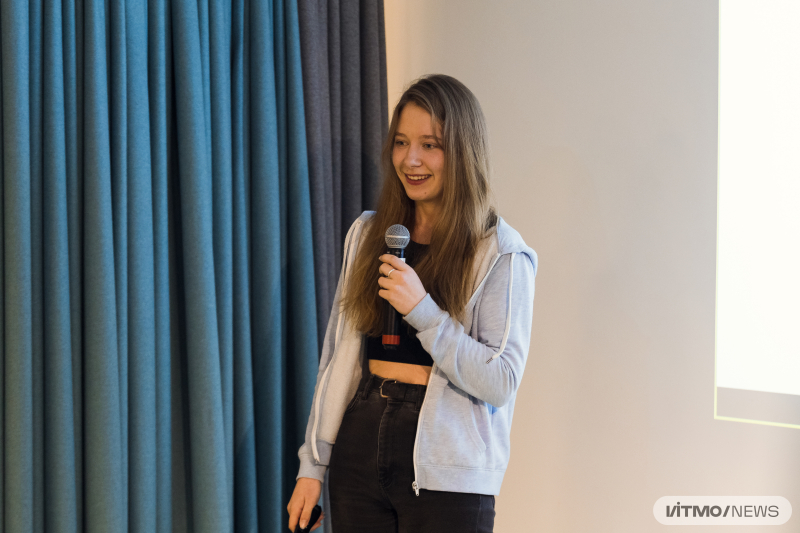
Daria Lapaeva. Photo: Dmitry Grigoryev / ITMO.NEWS
It’s already been proven that alcoholism causes neuroinflammation of the brain cells and destroys cells in the central nervous system. But it’s still unclear how the process of degradation occurs and whether it can be reversed. I use lab rats to study which genes are responsible for the effects of alcoholization and if the neuroinflammation of brain cells may be slowed down with the help of the antibiotic azithromycin. With the guidance of Sergey Eresko, an engineer at ITMO’s Center for Chemical Engineering and a researcher at the Institute of Experimental Medicine, I have conducted a series of laboratory experiments and found that the use of azithromycin can decelerate neuroinflammation in the rats’ brains – caused by long-term alcoholism – by ten times. Next, I plan to study the effects of the antibiotic at different stages of alcohol withdrawal. Potentially, the antibiotic could be used to develop a drug that would minimize neuroinflammation.
I applied for ITMO.STARS with a different project that is more closely related to my subject area. But at the same time, I’m working on this new study that has imbued me with useful skills and provided a chance to apply them in practice – extracting RNA from cells, conducting reverse transcription to produce DNA, and monitoring gene activity levels under varying conditions in real time using the PCR method.
The ITMO.STARS contest has motivated me to do more project work, conduct my own projects independently, and to apply to ITMO. Here, I’ve found the opportunity to be a part of a scientific team right from my first year; and the flexible schedule has allowed me to strike a balance between studies and research.
